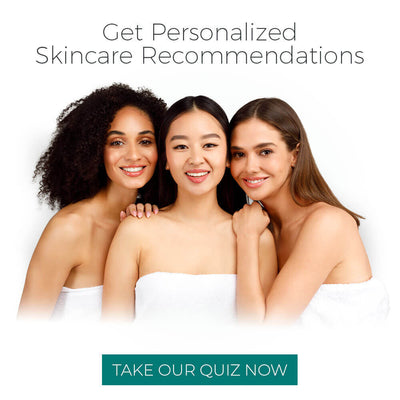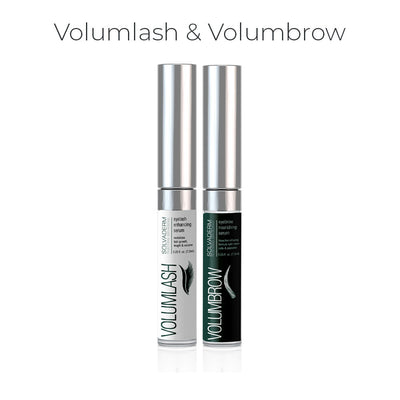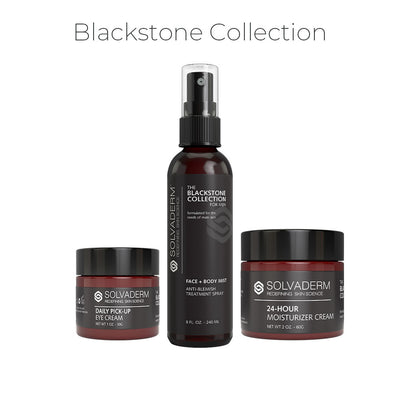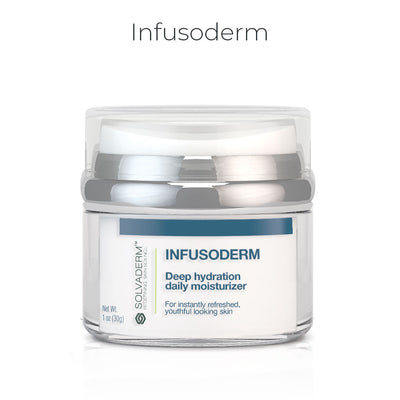If your skin is looking dull or you have bumps and zits on your face, the chances are that you have clogged pores. Many people have them. Sure, pores are tiny, but when clogged, they pave the way to serious skin problems such as acne. Why do our pores get clogged? How do we treat and prevent them? You’ll find out in this post.
What are Clogged Pores?
Clogged pores are hair follicles that become blocked due to a combination of dead skin cells and sebum (oil). Also known as blocked pores, this skin problem is more common in adolescents and young adults. However, everyone can develop clogged pores regardless of age and gender.
According to the Cleveland Clinic, blocked pores are a common skin problem. For example, acne affects around 50 million people each year. Knowing this is important because having blocked pores is the leading cause of acne.
Blocked pores can be frustrating and cause problems such as acne, but they’re manageable. Further in this post, you’ll learn what clogged pores look like and how to treat them.
What Affects Pore Size?
The size of pores, in general, is influenced by several factors, such as age, genetics, and environmental factors. Age affects pore size because collagen and elastin fibers weaken with time, thus causing pores to appear more prominent. Genetics is a significant factor because people inherit pore size from their parents. An example of an environmental factor that affects pore size is sun exposure.
Other factors that influence how the pores on the nose and face look include excessive sebum production, improper skin care, and the presence of blackheads and whiteheads. According to a study from The British Journal of Dermatology, enlarged pores are associated with the male gender. That means a person’s sex could influence the size of their pores.
What’s the Difference Between Clogged Pores and Enlarged Pores?
Although often related, blocked pores and enlarged pores are different things. Clogged pores tend to result from excessive sebum production, but enlarged pores may occur due to age, sun damage, hair follicles, and skin products. Enlarged pores don’t necessarily lead to blocked pores. It is possible that clogged pores appear larger or that a person with enlarged pores develops problems such as clogging and acne, but the two skin issues aren’t always connected and may not occur together. The main difference between clogged and enlarged pores is their causes.
How Do Pores Get Clogged?
Our pores on the nose and other areas get clogged due to a combination factor where the primary culprit is excessive sebum production. Sebum may mix with dead skin cells, which are constantly shedding. A combination of oil and dead skin cells creates a plug inside a pore and obstructs its opening. That’s when the pore becomes blocked or clogged.
Moreover, bacteria on the skin’s surface can come into contact with a combination of oil and dead skin cells. As a result, the obstruction of the opening of the pores worsens, contributing to the development of clogged pores.
Increased volume of hair follicles may lead to enlarged pores[1] and make them more susceptible to clogging.
Specific makeup and skincare products can clog pores due to heavy ingredients. Other factors that may clog your pores include:
- Humid conditions
- Air pollution
- Picking at pimples
- Stress and anxiety
- Scrubbing or washing skin too hard
- Medications that interfere with sebum production (testosterone, phenothiazine, some progesterones)
- Foods that increase sebum production (refined carbs, fried foods, salty foods)
What are Some Signs Of Clogged Pores?
Most people don’t notice their pores are blocked and aren’t sure what clogged pores look like until specific skin problems appear. Telltale signs your pores are blocked are listed below:
-
Blackheads: Blackheads are known as open comedones since they widen the pore's opening. They look black due to the chemical reaction of the content in the pore to oxygen. Blackheads are usually pores on the nose, which appear on the chin and sometimes on the cheeks. You can also develop them on the neck, back, and chest.
-
Whiteheads: Whiteheads, on the other hand, are known as closed comedones because a clog in the pore’s opening may lead to a raised white or flesh-colored bump on your skin. Whiteheads usually appear on the face (nose, chin, forehead, cheeks, and around the mouth), but they can also affect the neck, back, chest, and upper arms.
-
Nodules and cysts: These refer to the swelling, pain, and irritation in the skin. Sometimes, nodules contain pus, called a cyst, contributing to cystic acne.
-
Pimples and blemishes: This is when redness, irritation, and swelling due to trapped oil and dirt in the pore is experienced.
How to Recognize Clogged Pores?
The easiest way to understand what clogged pores look like is to stand in front of a mirror and observe your skin. Blocked pores appear more prominent, and they give dullness to your complexion. The presence of clogged pores is evident if you also have small dark spots on the surface of your skin. Sometimes, people may notice small, flesh-colored bumps instead of small and dark spots. These spots and bumps may be surrounded by redness and accompanied by inflammation.
Can you Unclog Pores?
The biggest issue with clogged pores is that they can lead to serious skin problems if left unmanaged. The good news is that you can improve or unclog the blocked pores. Doing so requires patience because you need an excellent strategy to eliminate them.
Don’t ignore the blocked pores, believing they will improve on their own without any effort. Relying on this thought could lead to acne, which can be stubborn and difficult to manage. Further in this post, you’ll learn how to clean nose pores and pores in other areas.
How to Deal with Clogged Pores?
As mentioned above, you can unblock pores or prevent them from getting clogged again. Here’s how to clean pores and unclog them:
-
Chemical exfoliation: This treats clogged pores by removing dead skin cells and excess sebum. You’ll achieve the best results with products that contain salicylic acid or BHA, which is oil-soluble. This compound can penetrate the pores and break down debris and oil.
-
Extractions: Trained professionals like dermatologists and estheticians use specialized tools to extract the contents of the pores. They can also give you useful tips on how to clean pores.
-
Use retinol: One of the best ingredients for people with blocked pores. Vitamin A derivative promotes cell turnover by speeding up the removal of dead skin cells. Additionally, retinol breaks down the plugs of dead skin cells and sebum that clog pores. It exhibits anti-inflammatory effects[2], stimulates the production of collagen, and reduces the production of oil. Add retinol products to your skincare routine. A good example is Suvoderm Retinol Night Cream.
-
Use steam: A powerful pore cleanser; it opens pores and allows for better absorption of products that help unclog them. Steam softens the skin, loosens impurities, and improves blood flow.
-
Don’t pick or scratch: These habits can spread bacteria from fingertips and nails to pores, increase the risk of infection, or push the impurities deeper into the skin. Picking and scratching worsen the problem, cause scarring, and delay healing. Instead, consult a dermatologist on how to clean nose pores and other affected areas.
-
Gentle cleansing: This works by removing impurities from the skin and preventing a buildup of dead skin cells. Gentle cleansers maintain the skin’s pH balance, reduce inflammation, and improve the absorption of other ingredients for unclogging pores, such as the Glowpeel Exfoliating Serum.
Prevention Tips for Clogged Pores
When it comes to this skin problem, it’s not just about learning how to clean nose pores and other areas; it’s essential to know how to prevent them. Here are a few prevention tips to adapt to your skincare routine:
-
Makeup removal: Never go to bed with your makeup on; it increases the risk of blocked pores. Proper makeup removal removes the residue of your products, prevents acne and breakouts, minimizes irritation, and allows skin to breathe. Follow up makeup removal with a gentle pore cleanser.
-
Cleanser: A good cleanser is powerful enough to remove all impurities and residues but also gentle to your skin. Use products such as Rejuvoderm Clarifying Cleanser twice daily, in the morning and before bedtime, to keep your skin free of dead skin cells and bacteria that could block pores.
-
Toner: Toner prevents blocked pores by removing residual makeup and impurities such as oil and dirt that a cleanser may have left behind. You can apply toner after pore cleanser but before moisturizer.
-
Exfoliator: This prevents pores from clogging by removing dead skin cells that would otherwise mix with sebum. How to clean pores with an exfoliator? Apply a product with glycolic or salicylic acid once or twice a week and follow it with a nourishing cream.
-
Moisturizer: Infusoderm Hydration Daily Moisturizer nourishes and hydrates the skin without adding excess oils. Proper hydration reduces the likelihood of excessive sebum production.
Pore Cleaning Methods to Avoid
If you browse how to clean nose pores online, you’ll see many suggestions, but not all are safe for you. Here are methods you should avoid[3]:
- Baking soda scrub: Many consider it a powerful pore cleanser, but it may dry out and irritate your skin because its pH is too alkaline for your face. Baking soda could strip the skin’s natural barrier, thus making it susceptible to damage.
- Lemon: Since lemon is acidic, it can alter the pH value of the skin and thereby cause dryness, irritation, and damage. Don’t apply lemon to your face. Instead, you can drink lemon water. Use more gentle products to treat pores on the nose and other areas.
Frequently Asked Questions About Clogged Pores
How long does it take to unclog pores?
The time it takes to unclog pores may vary from one person to another. Several factors include your skin’s natural healing process, skin type, severity of blocked clogs, and skincare routine. You can unclog your pores with a proper skincare regimen in a few weeks. Follow our tips on how to clean pores to give your skin exactly what it needs.
Why do my pores get clogged so often?
Your pores get clogged often due to excessive sebum production and other factors such as genetics, hormonal fluctuations, and environmental factors such as air pollution. In addition to knowing what clogged pores look like, it’s helpful to be aware that blocked pores aren’t the same as enlarged pores.
Can your diet cause large pores?
Your diet can contribute to large pores because certain foods lead to excessive sebum production, resulting in open pores prone to clogging. Foods that may enlarge your pores are processed foods, sugar-laden products, salty foods, and trans fats. Enrich your diet with vitamins, minerals, protein, fiber, and healthy fats to improve overall well-being and skin health.
Conclusion
Clogged pores are a common problem. Most people develop blocked pores at one point or another. Fortunately, you can overcome this problem with a proper skincare routine. Don’t be afraid to seek professional help, as dermatologists can advise you on how to take care of your skin.
References
1] ↑https://pubmed.ncbi.nlm.nih.gov/26918966/
2] ↑https://www.ncbi.nlm.nih.gov/pmc/articles/PMC5574737/
3] ↑https://www.healthline.com/health/beauty-skin-care/how-to-unclog-pores#avoid










